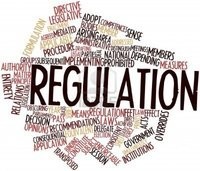A resolution to increase access to life-saving biologicals was passed in May 2014 at the Sixty-seventh World Health Assembly of the World Health Organization (WHO) [1]. However, there still exist barriers to market access for biosimilars. Authors Drs Hye-Na Kang and Ivana Knezevic, from WHO, discuss the factors that give rise to these barriers and explain the importance of regulatory oversight throughout the product life-cycle of biosimilars [2].
Since then, action has been taken to help WHO Member States to increase their expertise in evaluating biosimilars and expand their capacity to do so; to improve regulatory convergence; and to use existing resources more effectively. WHO has also, as part of its biological standardization programme, introduced guidelines on the evaluation of biologicals (including biosimilars) to ensure their quality, safety and efficacy [3]. These guidelines, according to the authors, are usually incorporated into national requirements to ensure that the products produced and used in a country conform to current international standards. However, despite such initiatives, and according to Kang and Knezevic, there are barriers to market access for biosimilars.
One of the reasons causing a lack of uptake of biosimilars is the belief by clinicians that a biosimilar cannot be as good as the originator for their patients. This, say the authors, arises from a lack of understanding that biosimilars have undergone comparability studies that demonstrate their similarity, that data on the originator products can be extrapolated and that biosimilars become independent products after licensing and undergo their own development. This is where the importance of regulatory oversight throughout the product life cycle of biosimilars is critical for increasing confidence in their use.
Competition from biosimilars reduces the price of biologicals and increases their availability. However, improving access to biosimilars and ensuring they are used appropriately requires a high degree of collaboration between all stakeholders. The role of regulatory authorities is to provide regulatory oversight of biosimilars throughout their product life cycle and to ensure that only high quality, safe and efficacious biosimilars are available on the market. Regulators should consider increasing capacity and improving the efficiency of their approval processes to ensure increased access to biosimilars. Finally, the authors suggest that WHO standards could serve as a basis for mutual recognition of regulatory oversight and for regulatory convergence at the global level.
The subjects of life cycle and regulatory evaluation for biosimilars and the role of regulatory authorities are covered in more detail in the following series of two articles.
Conflict of interest
The authors of the research paper [2] declared that there was no conflict of interest.
Related articles
Biosimilars and the role of regulatory authorities
Life cycle and regulatory evaluation of biosimilars
References
1. GaBI Online - Generics and Biosimilars Initiative. WHO calls for better science-based regulations for biosimilars [www.gabionline.net]. Mol, Belgium: Pro Pharma Communications International; [cited 2018 Jun 8]. Available from: www.gabionline.net/Policies-Legislation/WHO-calls-for-better-science-based-regulations-for-biosimilars
2. Kang H-N, Knezevic I. Regulatory evaluation of biosimilars throughout their product life-cycle. Bull World Health Organ. 2018;96(4):281-5.
3. GaBI Online - Generics and Biosimilars Initiative. Global guidelines for biosimilars [www.gabionline.net]. Mol, Belgium: Pro Pharma Communications International; [cited 2018 Jun 8]. Available from: www.gabionline.net/Guidelines/Global-guidelines-for-biosimilars
Permission granted to reproduce for personal and non-commercial use only. All other reproduction, copy or reprinting of all or part of any ‘Content’ found on this website is strictly prohibited without the prior consent of the publisher. Contact the publisher to obtain permission before redistributing.
Copyright – Unless otherwise stated all contents of this website are © 2018 Pro Pharma Communications International. All Rights Reserved.








 0
0











Post your comment